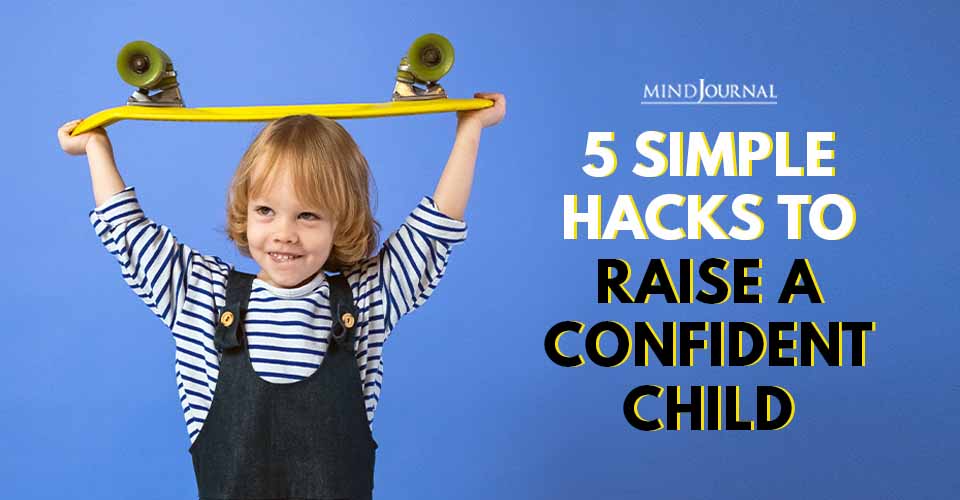Are you one of those parents who raise confident children? I’m yet to meet a parent who doesn’t want their kids to be successful. At least of the calibre of Bill Gates, J.K. Rowling or Taylor Swift.
And, of course, what we’ve been repeatedly told by the media, gurus and teachers alike is that what makes it all possible is a powerful intangible thing called self-esteem.
“You need to believe in yourself if you want to become someone in life” is an adage that’s been around for longer than we can remember. But it’s not just some self-help fluff. Studies do tell us that those who appear confident (over-confident even) are viewed as more competent, therefore— are better compensated for their perceived “proficiencies.”
The thing about true self-esteem, though—as those who relentlessly seek it can attest to—is that it’s not an easy mindset to build. There is no magic formula.
If we are to believe some not-so-distant research, self-esteem, or having a positive or negative sense of self, is well-established by the time we reach 5 years of age. That’s scarily young. And around the same time, kids also start to compare to others, such as friends and acquaintances and form opinions how they fare against them.
Related: The Dangers of Distracted Parenting: Why Parents Need To Put Down Their Phones
So, when it comes to helping our kids grow into self-confident adults, the job becomes even more challenging, as we only have a short window of opportunity to do so.
What can we do, then, as parents, to ensure our children learn to value themselves? How to raise confident children?
Here’s my advice.
1. Don’t overpraise
We all fall into this trap, naturally. We want to make our children feel good about themselves. But “inflated praise” as “You are terrific,” “You are the smartest,” “Perfect” often backfires.
In a study of 712 kids, those who had low esteem and were given inflated acclaim, actually felt worse—they were under pressure to keep meeting the high standards implied in the accolades. And because they feared the praise will be taken away when they fail, they aimed to avoid challenges altogether.
So, tone down your kudos. A well-intended cheer to show your pride and encouragement for your little ones can easily advance into a FONA (fear of not achieving) syndrome or narcissism.
2. Encourage effort, not outcome
The influential American psychologist Carl Rogers, in his famed Theory of Personality, talks about the so-called “conditions of worth.” When approval and affection are contingent upon certain performance, he asserted, our self-esteem suffers.
If parental support and love hinges on kids achieving certain goals, they develop an unstable sense of self-value. When we say things as “I’m so proud you got an “A” on your math test,” “You were so good at the game when you scored that goal,” it automatically creates the condition of worth. And often children feel compelled to keep living up to these expectations.
Of course, moderate amounts of pressure can be incentivising. But when the bar is set too high, it takes its toll. What’s even more, research tells us, only the perception of parental criticism can have the same unfavourable outcomes, such as anxiety, depression, or acting-out behaviours.
If you want to raise confident children, then encourage effort not outcome!
Related: 25 Effective Parenting Rules For Mothers With Sons
3. Unconditional love is also not the magic bullet

The opposite—completely unconditional love, paradoxically, may also lead to low, not high, self-esteem, as a piece in Psychology Today claims. A too forgiving attitude won’t give kids the skills to handle obstacles and criticism later in life. Grit and perseverance are built from one’s own experiences. Leaning to surmount hurdles is not something that can be classroom-taught, it comes from doing and trying.
So, let them work through difficult situations on their own—challenge and encourage them, but also teach them to accept failure as an inevitable part of life.
4. Everything is not always ok
Telling kids things as “Everything is ok,” “Nothing is wrong,” “Mommy is crying because she’s being silly” is not a good approach to help them handle life’s adversities. Don’t try to project an unrealistically impeccable self-image—it will only create an unhealthy drive in children to be flawless as their parents.
Rather, the better way to instill lasting confidence is for “parents permit the child to observe their struggles, their difficulties, and their conflicts because struggling is a primary coping response.”
Related: 9 Tips For Co-Parenting With Your Difficult Ex
5. The affair with academics
Finally, a major shaper of children’s’ self-esteem is academic achievement. And although research tells us that the two concepts are connected, the link is rather complex.
That is, high self-esteem doesn’t necessarily lead to stellar performance.
A famous study by the Professor of Psychology Roy Baumeister from Florida State University in the U.S., has uncovered that attempts to increase self-worth don’t lead to better grades and sometimes can even be counterproductive. In his words: “It’s not expected, for example, that a global sense of being worthy, competent and popular, will predict performance of a trigonometry quiz.”
Related: 30 Ways In Which Narcissistic Parenting Affects A Child
Simply put, confidence is rather the consequence, not the cause of good grades.
Therefore, don’t blame your kid’s less-than-genius performance at school to their lack of self-value. It’s simply not true.
~ ~ ~
In the end, as parents, we absolutely need to do everything we can to help our children become self-sufficient, resilient individuals, who know their sense of worth and won’t give up in the face of challenges.
It’s a big goal, for which there is no single best solution.
But if you let kids learn independence, guide them through their struggles and let them learn their own lessons, they may just as well grow up to become the next Bill Gates.
One thing is for sure, though.
“Without hard work, nothing grows, but weeds,” as the saying goes.
What’s your experience raising confident children? Let us know in comments.
Written by: Evelyn Marinoff
Originally appeared on: Evelyn Marinoff
Republished with permission.
For more advice on how to become more confident and live a more fulfilling life, join Evelyn’s Facebook page here or visit her website http://www.evelynmarinoff.com/.










Leave a Reply